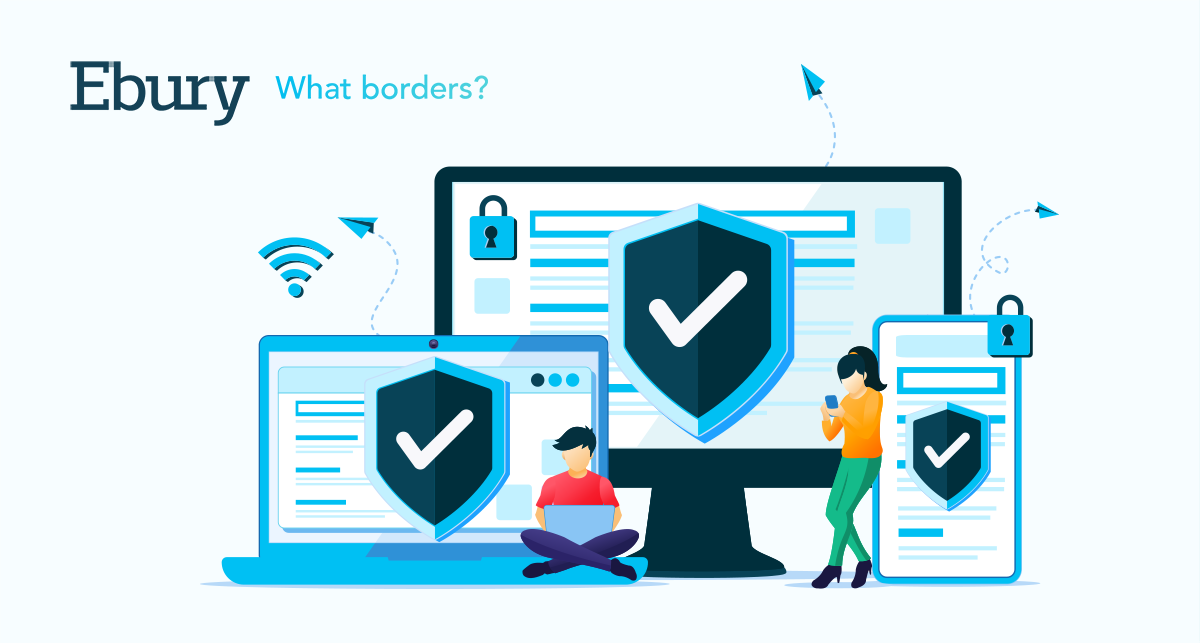Keeping Your Computer Safe
( 2 min read )
- Go back to blog home
- Latest
At Ebury we often see our clients fall victim to fraud as a result of compromised email accounts.

We would like to offer a few tips on how to maintain a safe and secure online environment.
If you suspect that your computer or email accounts have been compromised, please contact your IT department or a cybersecurity professional to rectify the matter.
1. Check Your Firewall
If you own a Windows-based system, just go to your control panel and type “firewall” in the search box. If your firewall is “on” or “connected,” then you’re good to go. If you own a Mac, click the Apple icon on your toolbar, go to “system preferences,” then “security,” then “firewall.”
Making sure you have a firewall in place can go a long way toward keeping criminals out. Make sure that you share some of your folders only on the home network. If you don’t really need your files to be visible to other machines, disable file and media sharing completely.
2. Backup Your Data
Backing up your data protects you in the event of a computer crash or electrical outage or surge. It also helps if you fall prey to the newer type of ransomware, which encrypts your sensitive data. You can do your back-up manually by transferring important documents to an external hard drive.
3. Stay Away From Suspect Websites
Look for a green lock in the address bar and the code prefix “https://” at the beginning of the URL while visiting banking sites, entering your credit card data or accessing your web mail. Be careful when shopping at a website that ships items from overseas, and don’t click on links sent to you in email messages. Go directly to the website itself instead.
4. Avoid Opportunities That Are Too Good to Be True
Some sites are known to lure customers in with amazing deals, and once they have your credit card information they’re never to be heard from again. Your identity may be compromised and you won’t even have the product to show for it. If it looks too good to be true, it probably is.
5. Don’t Divulge Sensitive Information
Be careful of the sensitive information you share. Although it is common knowledge not to give out your credit card information unless you trust a website, you should also be careful with your social media profiles. Revealing information such as your pet’s name or mother’s maiden name could lead to identity theft. You probably use the same names as security questions on other websites.
6. Don’t Open Unknown Emails
Never open emails from unknown or suspicious sources, and definitely never open any attachments contained in them. You have to be careful of emails coming from people on your contact list as well, especially if the sender’s account has been compromised. If an email from someone you regularly communicate with has a suspicious link or unusual content, delete it and alert this person that his or her account may have been compromised. This will help you prevent hacking and phishing scams where you may be a target.
If you notice suspicious activity on your Ebury Online account or if you have been a victim of fraud, please email [email protected] or visit our Fraud Page to find out more information.

